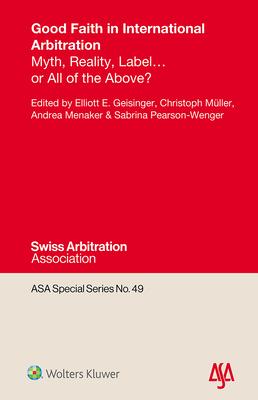Although considered a somewhat 'hazy' concept (particularly in common law), good faith may nevertheless be defined as a duty incumbent on a person negotiating or performing an agreement. Thus, it may be understood as obligatory on all parties in the conduct of arbitral proceedings. In this collection of expert chapters, notable jurists and legal academics from around the world fully investigate the multifaceted notion of good faith in international arbitration.
All the following aspects of the matter are covered:
detailed analysis of good faith in both common law and civil law traditions as reflected in doctrine, scholarship, and case law;
good faith implications in treaty interpretation;
using good faith as a negative defence against claims or as a positive basis for claims;
good faith in the specific field of international investment arbitration;
procedural aspects of the parties' obligation to act in good faith during pre-arbitral negotiations, conciliation, and mediation, as well as during the arbitral proceedings;
the duty of arbitrators and arbitral institutions to act in good faith; and
the role of good faith in actions to set aside.
As an authoritative survey and analysis of how the concept of good faith has been applied in international arbitration - and defined in the case law relevant to it - this matchless book provides invaluable guidance to parties involved in international arbitral proceedings.
